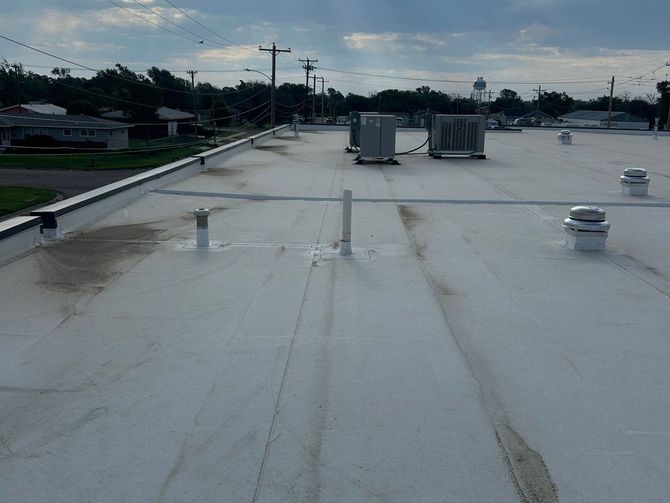The roof of your commercial property plays a critical role in its protection and energy efficiency. A well-built roof safeguards your building from weather damage, reduces maintenance costs, and can even cut down on energy expenses. This guide will help you understand the best roofing materials for your business and why quality roofing matters for the long term.
Assessing Your Commercial Roofing Requirements
When it comes to commercial roofing, different factors influence your decision-making process. Climate, the structure of your building, and your business operations all impact the type of roofing you should choose. Understanding these requirements ensures you make the right choice for your business, whether it's a warehouse, office building, or retail store.
Choosing the Right Materials for Your Commercial Roof
Several roofing materials are commonly used in commercial buildings. The best choice depends on your specific needs and budget. Each material offers distinct advantages, ensuring the right option for your business.
First Choice: Metal Roofing
Metal roofs are a top choice for commercial buildings due to their durability and energy efficiency. Steel and aluminum are the most common materials used, offering resistance to harsh weather conditions and excellent leak prevention. The reflective nature of metal roofs helps keep buildings cooler, lowering energy bills.
2. Flat Roofs
Many commercial properties use flat roofs due to their cost-efficiency and easy installation. Flat roofs are especially well-suited for modern buildings, with materials like TPO, EPDM, and PVC offering excellent waterproofing and insulation. Regular maintenance and good drainage practices help extend their lifespan.
Shingle Roofs for Commercial Properties
Shingle roofing, though less common for large commercial buildings, is often used for smaller properties or those aiming for a more traditional appearance. Asphalt shingles are an economical option, easy to install, and come in a variety of designs, though they may not last as long as metal or flat roofing systems.
Roof Installation Process and Maintenance Tips
Once you've selected the right material for your commercial roof, the next step is installation. Hiring an experienced, licensed roofing contractor ensures the job is done correctly. Proper installation is crucial for preventing leaks and maximizing the lifespan of your roof.
Ongoing maintenance is critical to keeping your roof in top shape. Regular inspections—especially after severe weather—are recommended. Check for any damage like missing shingles, cracks, or water pooling. Clean gutters and remove debris regularly to prevent potential long-term issues.

How Investing in a Quality Roof Protects Your Business
A good-quality roof is a sound investment. It offers protection from leaks that can cause expensive damage to your building and inventory. It also boosts energy efficiency, making your property more sustainable and lowering costs. A well-maintained roof can even increase your building's value and prevent costly repairs in the future.
Conclusion: How to Choose the Right Roofer for Your Commercial Property
Selecting the right roofing contractor is crucial to ensuring your roof is installed correctly. Choose a licensed and experienced professional who specializes in commercial properties and can help you choose the best material. A good roofer will also assist you with the installation and ongoing maintenance to keep your roof in optimal condition.
Are you ready to upgrade your commercial roof? Contact us today to learn more about our roofing solutions and get a free consultation!
#CommercialRoofing #RoofingMaterials #BusinessProtection #MetalRoofing #FlatRoofing #RoofInstallation #EnergyEfficiency #RoofMaintenance